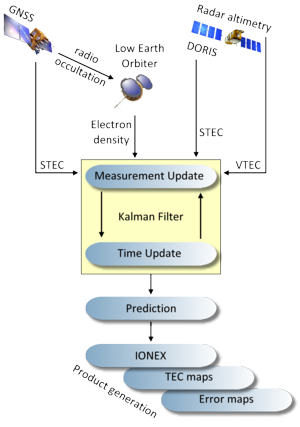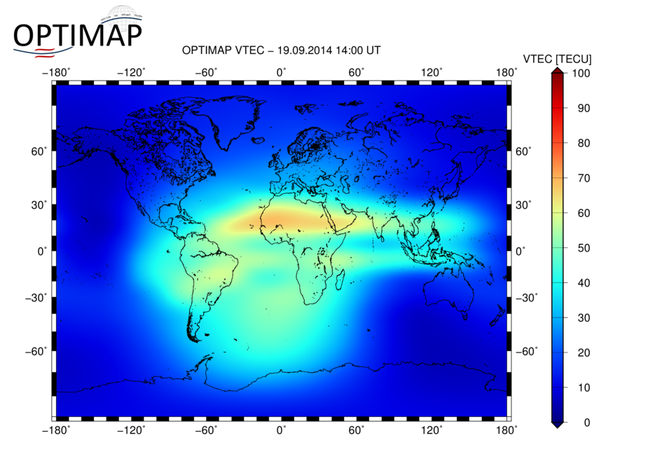Operational Tool for Ionospheric Mapping And Prediction (OPTIMAP)

This project aims on the computation and prediction of maps of the vertical total electron content (VTEC) of the ionosphere from various geodetic space observation techniques.
Key part of OPTIMAP ist the deployment of an operational service for the provision of ionospheric information at the German Space Situational Awareness Centre (GSSAC). Therefore, a software application (OPTIMAP) will be developed that allows to model the total electron content (TEC) as well as the electron density distribution on a global scale. The implemented model approach makes use of quadratic endpoint-interpolating B-spline functions with localizing characteristic and will be driven by a recursive filter (Kalman filter).
The performance of different Kalman Filter methods (classical, extended, unscented) will be studied to find the most suitable one for the purposes of this project. The Kalman filter is frequently updated by measurements of various geodetic space observation techniques such as GNSS, radar altimetry, DORIS and ionospheric GNSS radio occultations and allows to determine the present ionospheric state but also predictions up to a few days. The handling of different data sets in this sequential processing system imposes high requirements on download management, data handling and in particular the observation pre-processing.
Beside measurements sensing the Earth ionosphere, additional sun observations, processed and prepared by our project partner of the Institute of Astrophysics at the University of Göttingen (IAG), will be incorporated to adapt the model best possible to the current space weather conditions.
This project is funded by the Centre for Geoinformation of the German Armed Forces (ZGeoBw).

Arcisstraße 21
80333 München